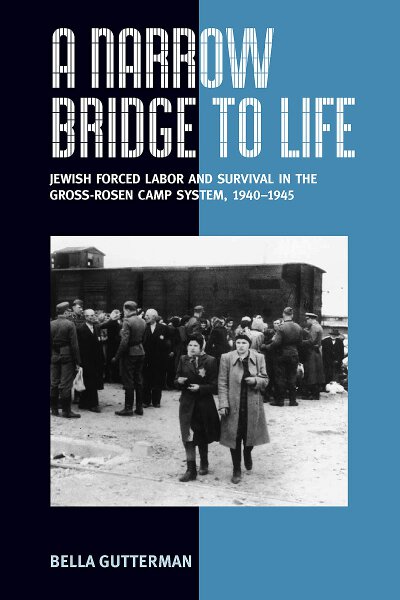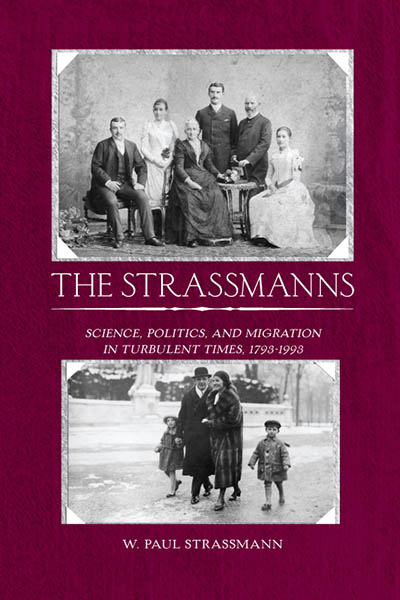
Email Newsletters
Sign up for our email newsletters to get customized updates on new Berghahn publications.
A Narrow Bridge to Life
Jewish Forced Labor and Survival in the Gross-Rosen Camp System, 1940-1945
Bella Gutterman
Translated from the Hebrew by IBRT
304 pages, 20 illus., 3 maps, bibliog., index
ISBN 978-1-84545-206-3 $135.00/£104.00 / Hb / Published (June 2008)
Reviews
“[The book] makes several important contributions to scholarship in the field of Holocaust studies…[Readers] will find a wealth of valuable information made accessible to the English reader for the first time.” · American Historical Review
“Bella Gutterman has discovered many primary sources and original documentation that we had not known about previously… adding considerably to knowledge of stages in German policy formation regarding forced labor, deepening our understanding of the tension between the desire to treat the prisoners as directed by Nazi ideology and wider discussion of the increased need to take advantage of their labor.” · Dina Porat, Head of the Stephen Roth Institute, Tel Aviv University
Description
By 1944 a large part of Eastern Europe had already been liberated by the Red Army, and the Allied forces were continuing to move in from the west after success at Normandy. Yet, in Lower Silesia, Germany more than sixty new forced labor camps were established, adding to the approximately forty camps that already existed. The inmates were Jews from Hungary and Poland who had been deported from the Lodz ghetto or who had been included on the infamous "Schindler’s List." These camps became satellites of the Gross-Rosen concentration camp and were the last to be liberated. Throughout their existence, the Gross-Rosen camp and its satellites had a special relationship. This is why, although the process of genocide was proceeding at top speed, some Jews were diverted from the gas chambers and sent to work at Gross-Rosen. Auschwitz-Birkenau was the main provider of inmate slave laborers for the Gross-Rosen armaments, munitions, and other factories owned by giant private enterprises, such as Krupp, I.G. Farben, and Siemens. Jewish inmates were also used in the construction of Hitler’s secret headquarters in the local Eulen Mountains and the secret underground tunnels used to store weapons. This book adds greatly to our knowledge of the complexity of German policy toward the Jews and forced labor. It not only describes the daily life of Jewish slave laborers but also traces Reich economic policy and the big corporations that used forced labor.
Bella Gutterman is a member of the International Institute for Holocaust Research at Yad Vashem. This book is based on her dissertation that was awarded the Wallenberg Prize and the Raphael Lemkin and the Leon Lustig Commemorative Prize. She is the former Director and Editor-in-Chief of Publication at Yad Vashem. Her books include A Toast with Death (1987) and Days of Horror in Lwow (1992). She co-edited The Auschwitz Album (2002, with Israel Gutman) and To Bear Witness (2005, with Avner Shalev), both have been translated into many languages.



